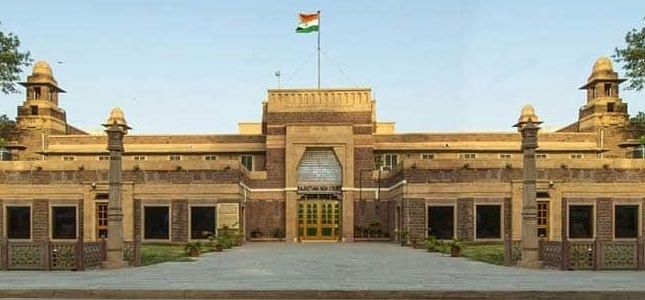New Delhi: Judges of the Rajasthan High Court have come together to urge lawyers to “desist” from addressing them as ‘My Lord’ and ‘Your Lordship’, a practice that dates back to India’s colonial past.
The decision was taken unanimously at a full-court meeting Sunday. “To honour the mandate of equality enshrined in the Constitution of India, the full court in its meeting dated 14.07.2019 has unanimously resolved to request the counsels and those who appear before the court to desist from addressing the Hon’ble Judges as ‘My Lord’ and ‘Your Lordship’,” the judges said in a notice issued after the meeting.
The use of these honorifics has been discouraged in the past as well.
In 2014, the then Chief Justice of India H.L. Dattu had said it was not mandatory to address judges as “Your Lordship”. The statement had come as the Supreme Court heard a PIL filed by advocate Shiv Sagar Tiwari, who claimed the use of such terms was not just a relic of the colonial era but also a sign of “slavery”.
“When did we say it is compulsory? You can only call us in a dignified manner…” Justice Dattu was quoted as saying during the hearing. “How can this negative prayer be accepted by us? Don’t address us as ‘lordship’. We don’t say anything. We only say address us respectfully.”
Also read: Only 7 of Supreme Court’s 31 judges have declared their assets
‘Relics of the colonial past’
Rules of the Bar Council of India also acknowledge that the terms ‘My Lord’ and ‘Your Lordship’ are “relics of the colonial post”. However, the rules state that lawyers should use ‘Your Honour’ or ‘Hon’ble Court’ in the Supreme Court and high courts, and could use ‘sir’ in subordinate courts and tribunals to address judges.
Similar instructions have also been issued by other bar associations.
In June 2007, the Kerala High Court Advocates’ Association passed a resolution, asking members to not use the terms while addressing judges. The Punjab & Haryana High Court Bar Association passed a similar resolution in 2011.
Individual judges have also taken a stand against the practice. In 2009, Madras High Court judge Justice K. Chandru banned lawyers from addressing the court with the two terms.
Also read: What are vacation benches & why some judges work when SC’s on a summer break
